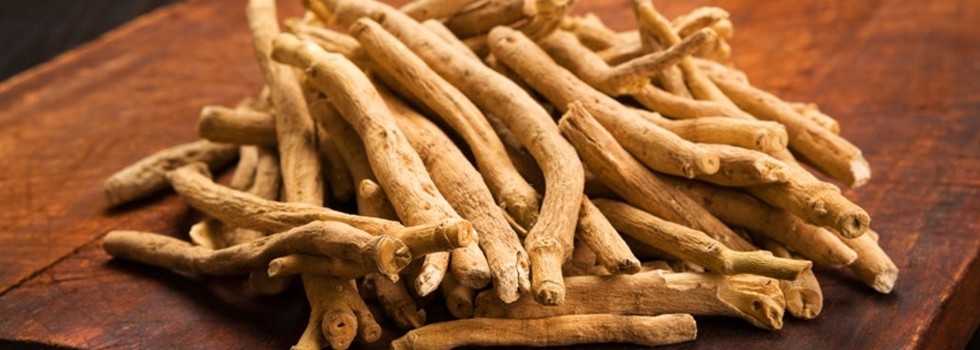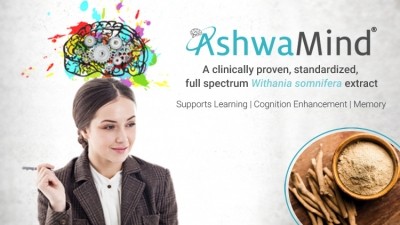Promotional Features
Mind wellness, memory and cognition enhancement from Ashwagandha
Around the world, a person will develop dementia every three seconds.[1] In 2020, more than 55 million people were living with dementia worldwide, with this figure set to [2]almost double every 20 years, reaching 78 million in 2030 and 139 million in 2050. Much of this increase will be seen in developing countries.[3]
Every year, there are nearly 10 million new cases of dementia globally.[1] Today, it is estimated that there are approximately 44 million people worldwide living with Alzheimer's disease[4]
Recognising dementia as a global public health priority, the World Health Organisation (WHO) defines dementia as a syndrome characterised by a deterioration in cognitive function beyond what might be expected from the typical consequences of biological ageing.[5]
In 2019, Alzheimer's disease and other forms of dementia was the seventh leading cause of death[2] and one of the major causes of disability and dependency among older people across the globe.
Dementia has physical, psychological, social and economic impacts, not only for people living with dementia, but also for their careers, families and society at large. The global cost of dementia and Alzheimer’s disease is estimated to be $605 billion, which is equivalent to one per cent of the entire world’s gross domestic product.[6]
Impacts on cognition and memory
An important aspect of dementia relates to the way it affects a person’s cognition. People with dementia or Alzheimer’s experience a deterioration in their cognitive functioning. Cognition refers to thinking, with dementia and Alzheimer’s affecting a person’s ability to think.
Cognition also encompasses the processes associated with perception, knowledge, problem solving, judgment, language, and memory.[7]
As cognition is the process of acquiring and understanding knowledge through people's thoughts, experiences and senses, memory is closely connected to our cognitive functioning. Memorisation, therefore, is a crucial cognitive process of the brain as the metacognitive as well as the cognitive processes reveal how memory is created in long-term memory (LTM).
Memory is the cognitive function that enables us to code, store and retrieve information from previous events, as well as providing a foundation and fundamental process for learning. Memory helps us to create a sense of identity.[8]
Memory disorders are disorders of cognition. They affect a person’s ability to reason, remember, make decisions and communicate. Today, there are a number of memory disorders that impact cognitive functioning, such as dementia, Alzheimer's disease, mild cognitive impairment, vascular cognitive impairment and hydrocephalus.[9]
As one grows older, the likelihood of developing memory loss increases.[10] In its mildest form, age-related memory impairment is characterised by the self-perception of memory loss compared to prior cognitive functioning. In its advanced form, memory loss could lead to a memory disorder, such as dementia.[2]
Unlike dementia, Alzheimer’s disease is a specific disease and the most common cause of dementia.[9] As people live longer, the risk of developing Alzheimer's disease increases dramatically. Although it is the most common cause of late-life dementia, other causes, particularly vascular disease, contribute to the occurrence of dementia, which is often defined as an impairment in several cognitive domains including memory to the extent that it interferes with daily life.
Approximately 40% of people aged 65 or older have age-associated memory impairment. In the United States, for example, this amounts to about 16 million people. Only about 1% of these age-associated memory impairments will progress to dementia each year.[10]
However, in today’s society, cognition and memory loss has begun to start at an earlier age, leading to yet another major concern. Causes responsible for these may be the impacts of modern-day lifestyle stressors such as a lack of work-life balance.
Ashwagandha: For memory and cognition enhancement
Ashwagandha, used in the Indian medical science Ayurveda, is known for its memory and cognition enhancement properties.
To draw upon its long-standing beneficial properties and consumer support, Botanic Healthcare, a leading manufacturer, supplier and exporter of wellness products and herbal extracts, created its ashwagandha-based ingredient, AshwaMind.
AshwaMind, made from ashwagandha (Withania somnifera) is a clinically tested, standardised and full spectrum extract containing six withanolides (withanoside IV, withaferin A, withanoside VI, 12-deoxy withastramonolide, withanolide A and withanolide B) to support memory and cognitive abilities in adults.
AshwaMind is manufactured using a unique extraction process, yielding the optimum percentage of withanolides. The manufacturing process has also been designed to retain the plant’s other important bioactives, which are required to ensure the herb’s efficacy.
Clinical research
Clinical research[13] from a well-known third-party report states that AshwaMind demonstrates its potential to support cognitive performance in human efficacy clinical trials.
The objective of this clinical study was to evaluate comparative clinical efficacy and safety of AshwaMind when used to treat cognitive function in adults.
The participants of the study were adult subjects who had reported they were experiencing memory impairment. For a period of 56 days, the researchers gave the 30 research subjects, who were aged between 40 and 75 years, 500 mg of the AshwaMind product three times a day.
The subjects’ cognition was tested at the beginning, middle and end of the trial using the MMSE (Mini-Mental State Examination) method. Those treated with AshwaMind showed improvement in all MMSE scores compared to the baseline and placebo trial, including immediate memory, spatial orientation, attention, delayed recall, and writing.
After taking the ashwagandha-based product for almost two months, the researchers found that AshwaMind improved memory and cognitive functions.
Why AshwaMind?
- The product demonstrates positive efficacious results from a human clinical study
- It is endowed with six bioactives providing holistic benefits
- AshwaMind is made with the best ashwagandha, cultivated using sustainable supply chain practices
- The product meets high quality standards that are compliant with US and EU standards and other global regulatory standards such as FSSAI, USDA Organic, India Organic, EU Organic, GMP, HACCP, ISO, Halal and Kosher.
AshwaMind: Stands for things that matter
In addition to demonstrating both its safety and efficacy through its clinical tests, AshwaMind is also Vegan and Lactose-free. The product is also India Organic, USDA Organic, EU Organic certified and passes the FSSAI, GMP, Halal, ISO, Kosher and HACCP quality stamp.
References:
- https://www.who.int/news-room/fact-sheets/detail/dementia
- https://www.who.int/data/gho/data/themes/global-dementia-observatory-gdo
- https://www.who.int/medicines/areas/priority_medicines/BP6_11Alzheimer.pdf
- https://www.alzint.org/about/dementia-facts-figures/dementia-statistics/#:~:text=There%20are%20over%2055%20million,will%20be%20in%20developing%20countries
- Dementia statistics | Alzheimer's Disease International (ADI) (alzint.org)
- https://www.ncbi.nlm.nih.gov/pmc/articles/PMC1123445/
- Alzheimer's Disease Statistics - Alzheimer's News Today (alzheimersnewstoday.com)
- What Is Cognition? | Introduction to Psychology (lumenlearning.com)
- https://www.uchealth.com/memory-disorders/conditions/
- https://opentextbc.ca/psychologyopenstax/chapter/what-is-cognition/#:~:text=This%20is%20only%20one%20facet,judgment%2C%20language%2C%20and%20memory
- https://www.cognifit.com/cognition
- www.botanichealthcare.net
- https://www.botanichealthcare.net/branded-ingredients/ashwamind/





